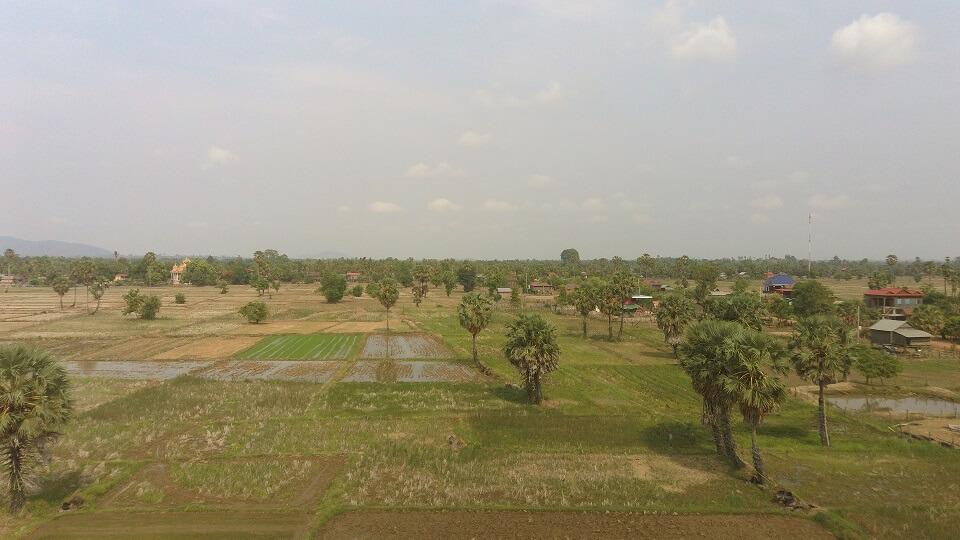- Home
- Worldwide
- CIRAD worldwide
- Projects
- WAT4CAM project
Water resource management and agroecological transition for Cambodia - WAT4CAM

Irrigation of rice paddies © F. Tivet, CIRAD
Issues
Cambodia is one of the most climate-vulnerable countries in the world. Rice cultivation there covers 3 million hectares, 0.5 million of which are irrigated in the dry season. The vast majority of irrigated systems enable additional water inputs to compensate for water deficits in the dry season. The development of these irrigation schemes generally results in the intensification of rice cultivation based on a combination of improved varieties, mineral fertilizers and pesticides. The environmental footprint of irrigated rice, including its impact on greenhouse gases, is thus an issue. The challenge of the project is to promote an agroecological transition in irrigated rice and vegetable systems that fosters crop diversification and linkages with fish and livestock farming.
Description
WAT4CAM is organized around four components: planning and renovation of water infrastructures; social management of water; meteorology and climate forecasting; and agriculture. CIRAD conducts research for development activities within this last agricultural component. These four key activities are aimed at identifying methods for intervention in irrigation schemes and for the design of diversified agroecological systems:
- analysis of the diversity of rice systems and understanding of recent pathways in those systems;
- implementation of trials to design and assess a range of agroecological systems with an agroecological crop management component;
- support for networks of farmers and service providers to adapt agroecological systems to the diversity of agroecosystems;
- capacity building for public sector operators (MAFF, GDA, Provincial Department of Agriculture), farmers, agricultural cooperatives, seed producers and service providers.
Expected impacts
- The living conditions of rural communities will have been improved.
- The environmental footprint of rice systems will have been reduced.
- Production will have been diversified, based on rice-fish farming, rice-livestock farming and vegetable cropping systems.
- Relations and exchanges between different ministries and operators (public, private, universities, NGOs) will have been strengthened, based on the national consortium for Conservation Agriculture and Sustainable Intensification (CASIC).
Contract partner
Cambodian Ministry of Agriculture, Forests and Fisheries
























